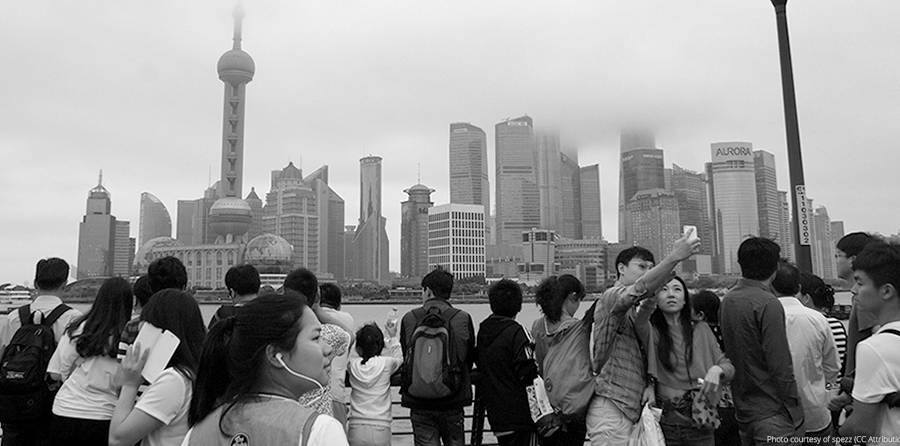China Rises: A Story from Shanghai

Towards the end of our program, a young executive in a very expensive suit, who had not spoken for most of the meeting, quietly stood up. What he proceeded to share, in slow but precise English, touched me deeply – and made me wonder just how far away I really was from my home in Canada.
Last week I sat together with a group of Chinese business leaders in a well-appointed conference room in Shanghai. The Pudong district where we met is the location of what will be the world’s tallest hotel, which will replace the world’s second tallest hotel down the street. Twenty short years ago the entire business district was not much more than a swamp, occupied only by the very poorest residents of Shanghai.
The workshop I was leading was one of the first appointments of my recent assignment in Asia, where I have relocated my office and my family for the next twelve months. I have been particularly curious to understand the challenges and opportunities facing business leaders here in one of the largest and fastest-growing economies of the world.
Towards the end of our program, a young executive in a very expensive suit, who had not spoken for most of the meeting, quietly stood up. What he proceeded to share, in slow but precise English, touched me deeply – and made me wonder just how far away I really was from my home in Canada.
“When I was a boy I was given the opportunity to attend a premier school. I would come home at the end of the day, and there was rarely any food in the house. Like many young boys, I was always hungry. My parents worked very hard, and always sacrificed everything for me. So I would go from door to door to visit my neighbors. I told them I was hungry, and they would feed me.”
As he spoke, I noticed that his colleagues were nodding their heads. They knew this story well—it was a narrative that described not just one individual, but a nation and a culture as a whole.
China today has one of the fastest growing middle classes in the world, comprising over 300 million people—basically equivalent to the entire population of America. Twenty years ago it hardly existed. It has been projected that in 2030 over 800 million people will be a part of this new Chinese middle class. Helen H. Wang, author of The Chinese Dream, writes in Forbes magazine that this phenomenon is “the biggest story of our time.”
As the young executive finished, he looked intently at his colleagues and said, “When I was as a boy I learned that people will help you if you ask. But I am telling you a story from the old China. Today is different. Today we live here in the biggest city in the world and we do not know even who lives next door to us in our condominium building. Will we still be able to help our neighbors in the new China?”
As I closed the workshop and returned to my hotel room it struck me how important and relevant his question was—not just for the Chinese, but also for those of us who grew up in the developed countries of the West. Can we honestly conclude today that people will help their neighbors, as long as they simply ask? How should leaders act when faced with complex global issues such as disparity of wealth and childhood hunger?
And what, finally, is our responsibility to our neighbors—on the other side of the world, on the other side of town and in the condominium next door?
